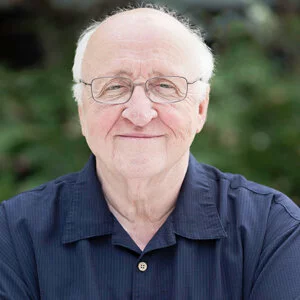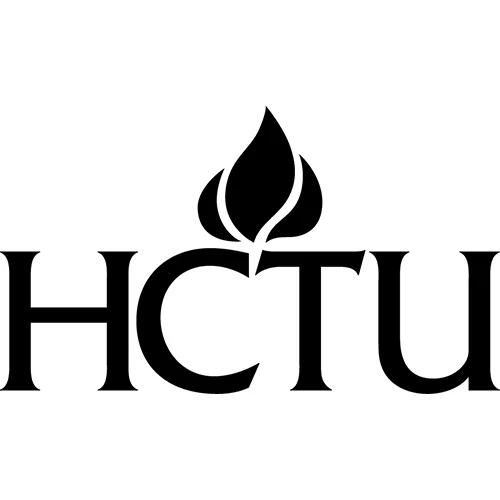live-blogged by Andy Naselli
(Streaming video is available here.)
Richard Mouw, president of Fuller Theological Seminary in Pasadena, California since 1993, is speaking on “Confessions of an Evangelical Pietist” here at Trinity Evangelical Divinity School. Here is how this lecture was advertised:
The Christian community needs to work at integrating our doctrine, action and piety (”head, hands and heart”). But which takes priority? And a closely related issue: what, in the most basic sense, is the Bible trying to “do” to us? Shape the way we think? Guide us in the activist programs we align ourselves with in the word? Transform our inner life? Obviously, all three are crucial. But Richard Mouw will explain why he keeps coming back to the fundamental need to be guided in everything else by the kind of piety that characterized the “sawdust trail” of our revivalist past.
* * * * * * *
When Mouw taught at philosophy at Calvin College back in the mid-1970s, his colleague Nicholas Wolterstorff set forth a typology of different “minds” within the conservative Dutch Calvinist community in North America. These labels signified, for him, three different perspectives on the kind of book the Bible is:
- the “doctrinalist”: The Bible primarily sets forth religious teachings—doctrines to which we must give our assent.
- the “pietist”: The Bible tends to be treated as a devotional handbook, the reading of which is meant to generate certain godly experiences and to form important subjective dispositions.
- the “Kuyperian”: The Bible is meant to give us our cultural marching orders, instructing us in the ways of discipleship in the collective patterns of life in the larger human community.
In the final analysis, Mouw is a pietist. (And Abraham Kuyper was also a pietist.) He wants to do two things in this lecture:
- He wants to bear witness to the basic pietist emphasis on the priority of inner transformation—an emphasis that he thinks best comports with an evangelical understanding of how to integrate “head, heart and hands.”
- He wants to confess some of his own worries about some of the defective tendencies that seem constantly to plague a pietist-kind of Christianity, as well as pointing to ways that a healthy pietism can enrich our doctrinal and cultural explorations.
There is no better example of what pietists are about than John Wesley’s well-known testimony regarding his “Aldersgate experience.” The kind of very direct and datable experience that Wesley was describing has a link in Mouw’s own spiritual journey to the fundamentalist “altar calls” of his youth.
Ernest Stoeffler’s magnum opus, The Rise of Evangelical Pietism, still stands as the best overall survey of pietism as an international movement. While he did much to highlight pietism’s strengths, Stoeffler was not insensitive to the movement’s faults. He specifically singled out three of what he described as its “less admirable” traits or tendencies:
- an “escapist” mentality that puts “the emphasis on blessedness in the hereafter rather than justice for all in the here and now”
- “a certain anti-intellectual atmosphere”
- a “pronounced tendency toward sectarian fragmentation”
Mouw embraces a pietism in which our intellectual lives, our cultural engagements, and our relationships with others in the body of Christ are guided by a personal and communal godliness.
Mouw places a priority on piety because the religion of the heart in turn must give direction to our heads and our hands.
Some “doctrinalists” are not opposed to seeing the heart as the primary locus of religious faith. John Calvin clearly refused to conflate mind and heart.
The heart, in the biblical sense, is the place where we form our fundamental trustings.
Mouw recognizes that what he is going to say about piety and doctrine will make some evangelicals nervous, so he begins with some appeals to the authority of three of his heroes, all theologians with impeccable orthodox and Calvinist credentials:
- Charles Hodge disagreed with Friedrich Schleiermacher’s theology but then concludes, “Can we doubt that he is singing those praises now? To whomever Christ is God, St. John assures us, Christ is a Saviour” (Systematic Theology, 2:440n1).
- Herman Bavinck frequently criticized Roman Catholic theology, but he also wrote, “We must remind ourselves that the Catholic righteousness by good works is vastly preferable to a protestant righteousness by good doctrine. At least righteousness by good works benefits one’s neighbor, whereas righteousness by good doctrine only produces lovelessness and pride. Furthermore, we must not blind ourselves to the tremendous faith, genuine repentance, complete surrender and the fervent love for God and neighbor evident in the lives and work of many Catholic Christians” (The Certainty of Faith, 37).
- Cornelius Van Til disagreed strongly with Barth, but he would not say that Barth was not a Christian. A person can have a highly defective theology and still have a heart that has been transformed by the power of the Gospel of Jesus Christ.
John MacArthur, an outspoken opponent of the “Evangelicals and Catholics Together” group, disagrees. Unlike MacArthur, Mouw believes that it is possible for people to be saved without subscribing to the doctrine of justification by faith. In other words, it is possible to be justified by faith without being clear (or believing the wrong thing) about the doctrine of justification by faith.
Mouw’s argument goes along these lines with those who show a genuine faith in Christ in spite of what he takes to be defective theology:
- Is your theology adequate to explain the saving grace that has transformed your inner being?
- Is that theology capable of sustaining the kind of faith that you claim?
- (and Van Til’s question to Barth) Is your theology, when spelled out as an evangelistic appeal, capable of presenting the gospel in such a way that people will come to Christ?
Our theology would often be in much better shape if we paid careful attention to what we are expressing in the hymns that we sing.





Comments
Be the first one to make a comment!